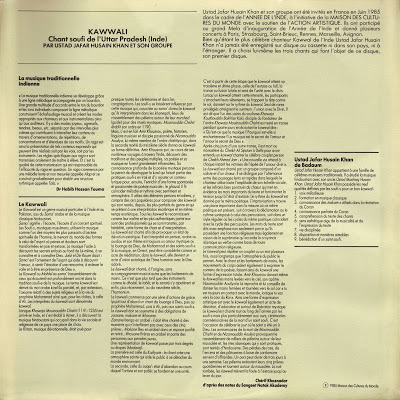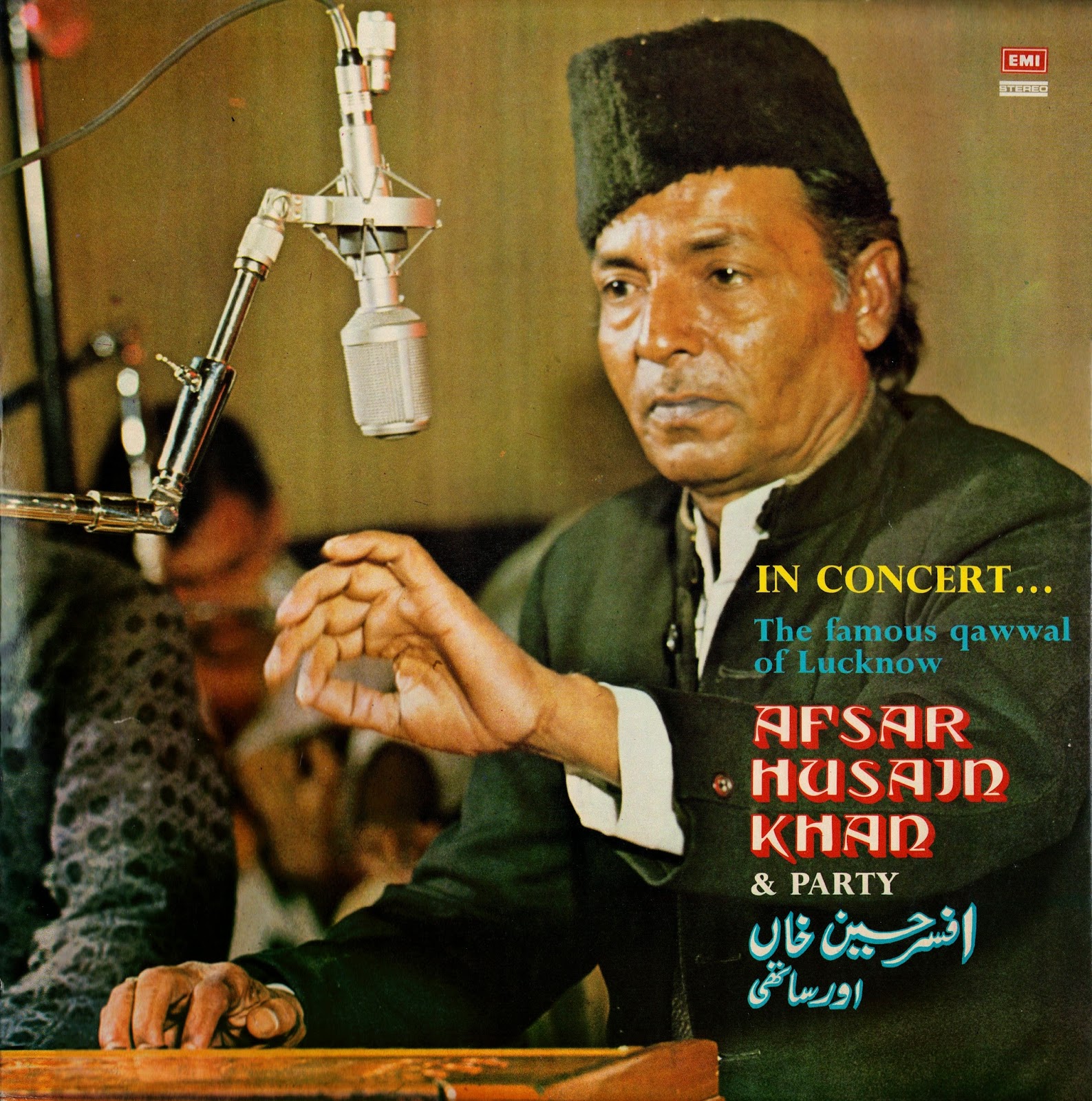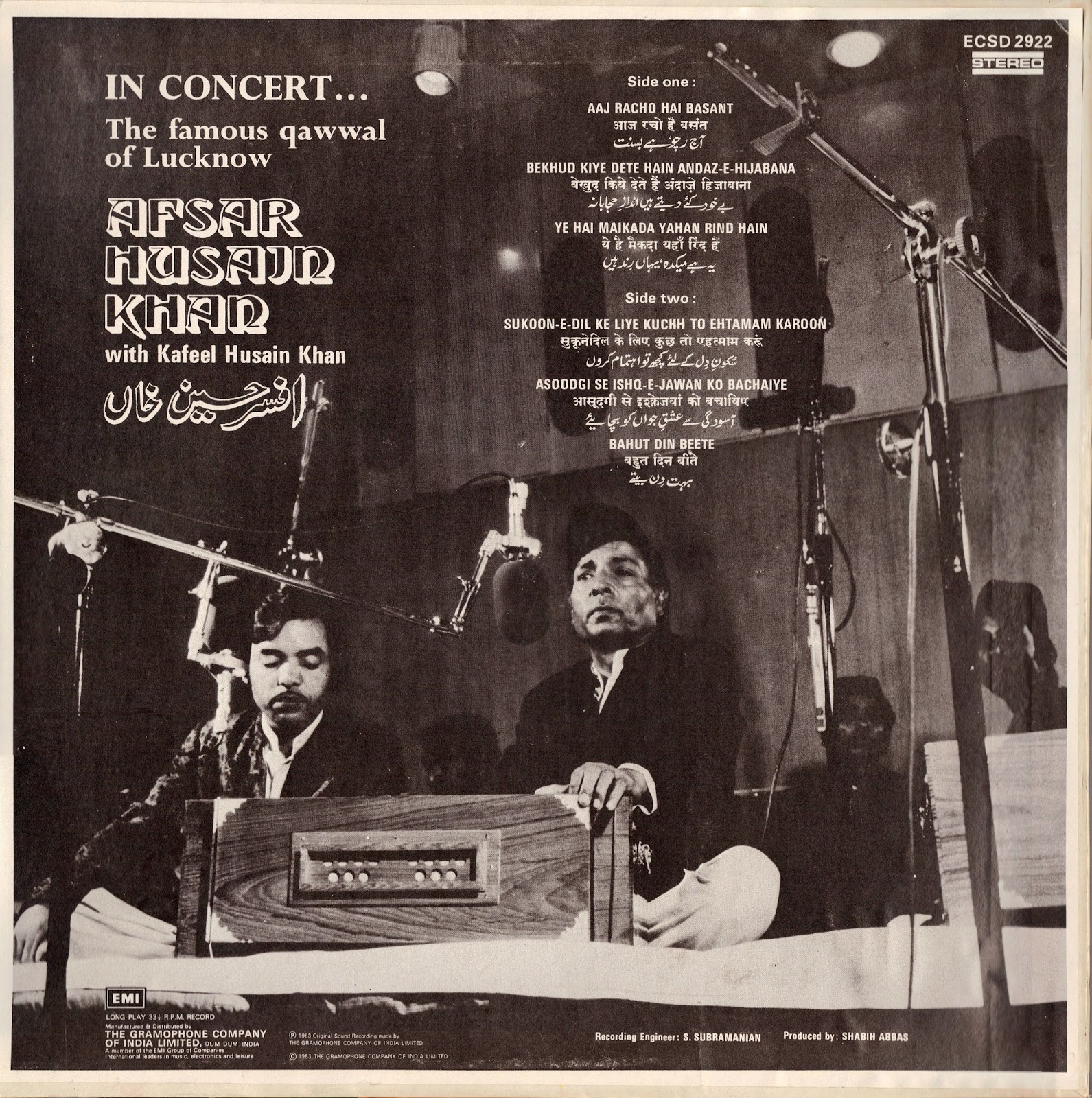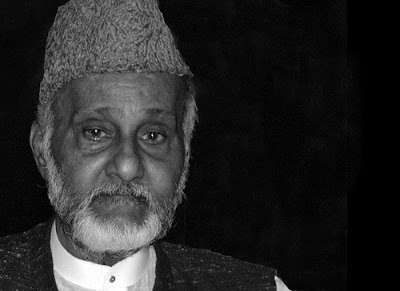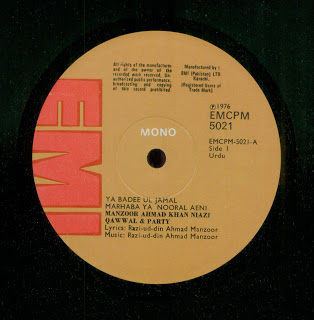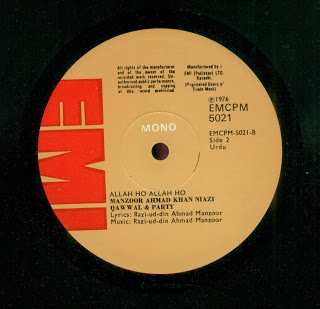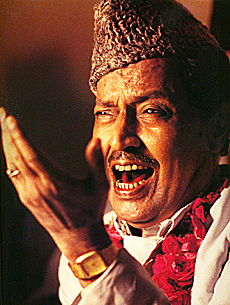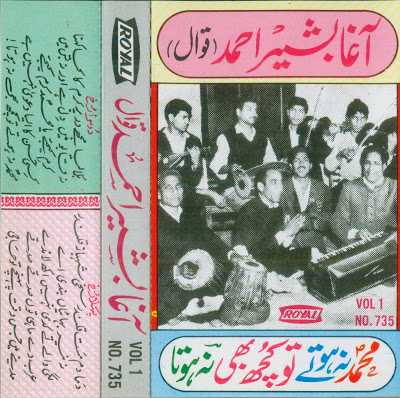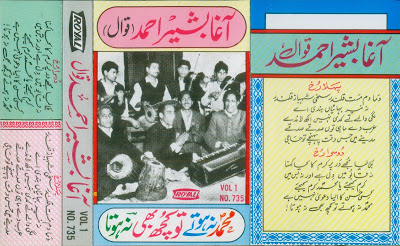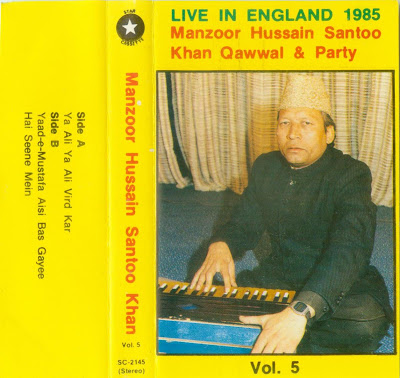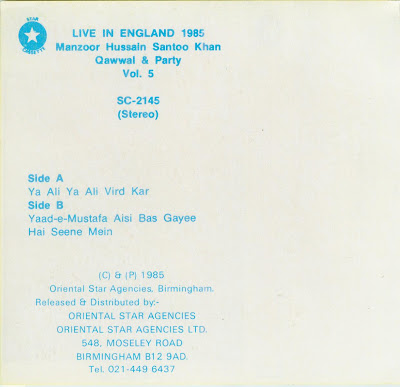Beautiful old style Qawwali. His full name: Agha Bashir Ahmad Faridi Qawwal.
Side A (30:27)
Side B (30:01)
Many thanks again to Danny who brought all these jewels from a trip to Pakistan many years ago.
Here some background information about the traditions he belonged to:
"Ustad Muhammad Ali Faridi Qawwal:
Ustad Muhammad Ali Faridi is a seminal
figure in the history of 20th Century Qawwali, influencing everything from how
it is performed to the position of the performers in a Qawwal party.
Incorporating Classical Sufi texts with the tradtional Doaba ang of Punjabi
gayeki, he created a potent style of Qawwali that proved popular both with the
discerning listeners and the masses. Although his recordings date from the mid
'30s to the late '60s, he started performing much earlier. Accompanied on his
latter recordings by his son Abdul Rahim Faridi, the Ustad displayed a unique
and very malleable voice that was very expressive in the upper registers and
displayed glimpses of his rather formidable classical training. His list of
shagirds includes giants like Agha Rasheed Ahmed Faridi and Agha Bashir Ahmed
Faridi along with his son Abdul Rahim Faridi, who in turn instructed modern
practitioners like Faiz Ali Faiz Qawwal. The Ustad's lineage continues through
his grandson Moeen Ali Faridi Qawwal.
Baba Din Muhammad Jalandhri
Qawwal:
When I wrote the earlier post on the Qawwals of the earlier half
of the 20th century, I added Din Muhammad Jalandhri almost as an afterthought,
because I didn't have any information about him that I could append to his
rather wonderful recording. Over time however, I have come to learn a great deal
about him and have come to realize his stature among the great Qawwals of the
early 20th century. Apart from having an amazingly robust and vociferous andaz,
Din Muhammad Qawwal, or Baba Deena Qawwal as the gentlemen over at Rehmat
Gramophone House call him, is the forbear of not one but TWO illustrious Qawwali
lineages. He was the uncle and ustad of arguably the greatest Qawwals of the
20th century, Fateh Ali - Mubarak Ali Qawwals (who are rightly called Ustadon ke
ustad, which makes Din Muhammad Ustadon ke ustadon ka ustad). In turn, Fateh
Ali-Mubarak Ali taught performers like the above mentioned Agha Rasheed Ahmad
Faridi and Agha Bashir Faridi as well as Bakhshi Salamat Qawwal and of course,
their successor Ustad Nusrat Fateh Ali Khan. And in Rahat Fateh Ali Khan, we see
the fourth generation of Baba Din Muhammad carrying the torch forward. His
direct lineage too, is impressive to say the least. He was the father of the
amazing Miandad Khan Qawwal. Miandad Khan Qawwal and his brother Hafiz Dad
Qawwal were affiliated with the shrine of Hz Baba Farid (RA) at Pakpattan and
performed till Miandad's death, after which the mantle was taken over by his
son, the supremely gifted Badar Miandad Khan Qawwal, who unfortunately like his
father, died at a very young age. His younger brothers Sher Miandad Qawwal et al
currently perform all over the world."

